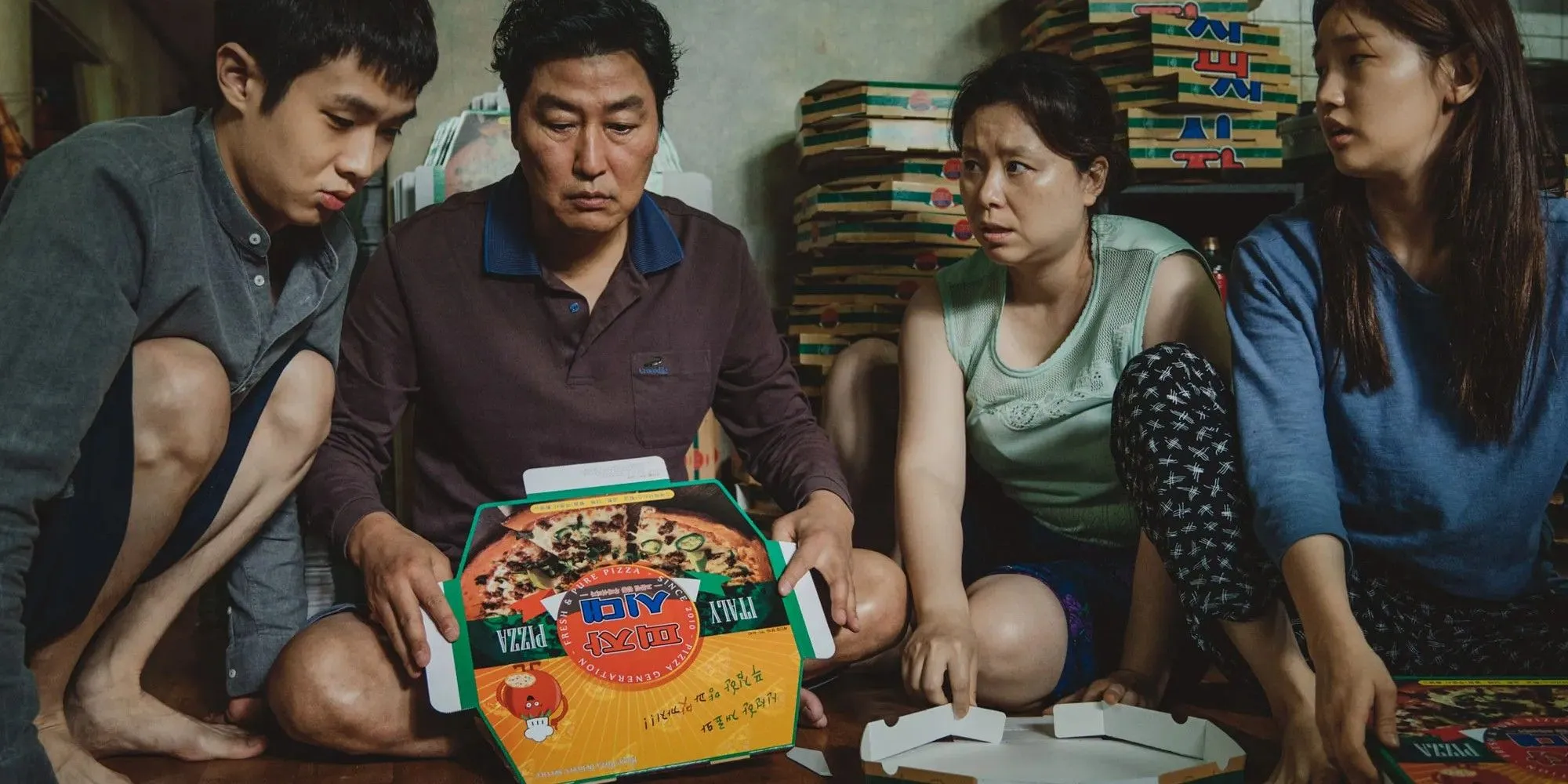Kims’ attempt to infiltrate the Park family’s home is not a straightforward task, and they achieve it by cunningly getting the Parks to hire them without realizing they’re all related. Step one comes when Ki-woo manages to get hired as Da-hye’s tutor, thanks to a forged certificate made by his resourceful sister, Ki-Jung.
With this, Ki-woo creates opportunities to get Ki-Jung in, making her pose as a highly sought-after art therapist. As a result, the Parks hire Ki-Jung to assist their son, Da-song, who’s struggling after a ghostly encounter in their kitchen.

The Kims then make a plan to get rid of the Park family’s long-term staff, first by framing the driver, which results in Ki-taek, their father, being hired. Ki-Jung further exploits the weakness of Moon-gwang, the housekeeper, using her peach allergy to falsely accuse her of tuberculosis.
This leads to Chung-sook, the Kims’ mother, securing the housekeeper position. The Parks remain unaware of the Kims’ family ties, and the Kims enjoy their time in the luxurious Park home, especially when the family is away.
Who Is the Man in the Basement in ‘Parasite?’
The situation seems to be going smoothly for the Kims until Moon-gwang returns unexpectedly, claiming she left something behind. In an unforgettable twist, the “something” turns out to be her husband, Geun-se, who’s been secretly living in a hidden basement bunker for years.
He was also the “ghost” that Da-song had seen during his late-night kitchen visits. Moon-gwang then realizes that the Kims have been deceiving the Parks and threatens to expose their secret, knowing they are all related.
What follows is a series of power struggles, with the Kims overpowering Moon-gwang and killing her, while Geun-se is left to remain hidden in the basement. When the Parks return unexpectedly, the Kims are forced to leave their temporary home and sleep in a gym, after their basement apartment is flooded.
What Happens to the Family in ‘Parasite?’
In the final act of Parasite, the Kims are invited to Da-song’s birthday party, a moment that leads to chaos. Ki-woo, seeking to put an end to Geun-se’s presence, enters the basement to kill him but ends up being struck in the head by Geun-se, who is bent on revenge for his wife’s death.
Geun-se, in a blind rage, attacks the birthday party, fatally stabbing Ki-Jung and causing trauma to Da-song once again. Ki-taek, witnessing Mr. Park’s insensitive comments about Geun-se’s “poor man’s smell”—something he had previously commented on regarding Ki-taek—kills Mr. Park in retaliation.
As the scene devolves into chaos, Ki-taek flees. Ki-woo later regains consciousness in the hospital, badly injured, with his sister dead, his father gone, and his mother facing criminal fraud charges. Later, Ki-woo returns to the Park house, only to find a new family living there.
He notices a flickering light in Morse Code and decodes the message, learning that his father is living in the basement of the house, hiding after killing Mr. Park. In a brief moment of optimism, Ki-woo imagines earning enough money to buy the house and free his father.
However, the film ends with the harsh reality of Ki-woo still stuck in his basement apartment, just as imprisoned as his father, but by financial struggles instead of the law.
Why Is the Movie Called ‘Parasite?’
Parasite reveals its title’s true meaning in its gut-wrenching ending. It shows how economic inequality is a trap, and the Kims’ dream of rising above their status remains an impossible fantasy. The Kims are not lazy or unwilling to work hard; they use deceit to get close to the wealth that the Parks take for granted.

Despite the Kims’ resourcefulness, they remain stuck in poverty, while the Parks show little concern for the lives of those they employ, more focused on their privileged lifestyle.
‘Parasite’s Bleak Ending Turns Wealth Into a Prison
The bleakness in Parasite comes from the fact that the Kims can never escape their poverty, no matter how much they desire a better life. Even if Ki-taek turns himself in, he would only be locked in another kind of prison, and death would be a probable outcome for him.
The Kims’ predicament is a result of their entrapment in a system where wealth remains elusive. The film paints a grim picture of social mobility, suggesting that the poor are destined to stay poor, and the rich will remain in their privileged position.
Ki-woo’s dream of buying the house and rescuing his father is nothing but a fantasy, as the film concludes with him still trapped in the basement—his future just as bleak as his past.
This depiction challenges the hopeful story often associated with terms like “income inequality,” as the movie paints a much darker picture of societal division. The Kims’ attempts to break free through deceit only highlight the fantasy of upward mobility—one that is out of reach.
Despite their struggles, they can never truly escape the cycle they are in.



